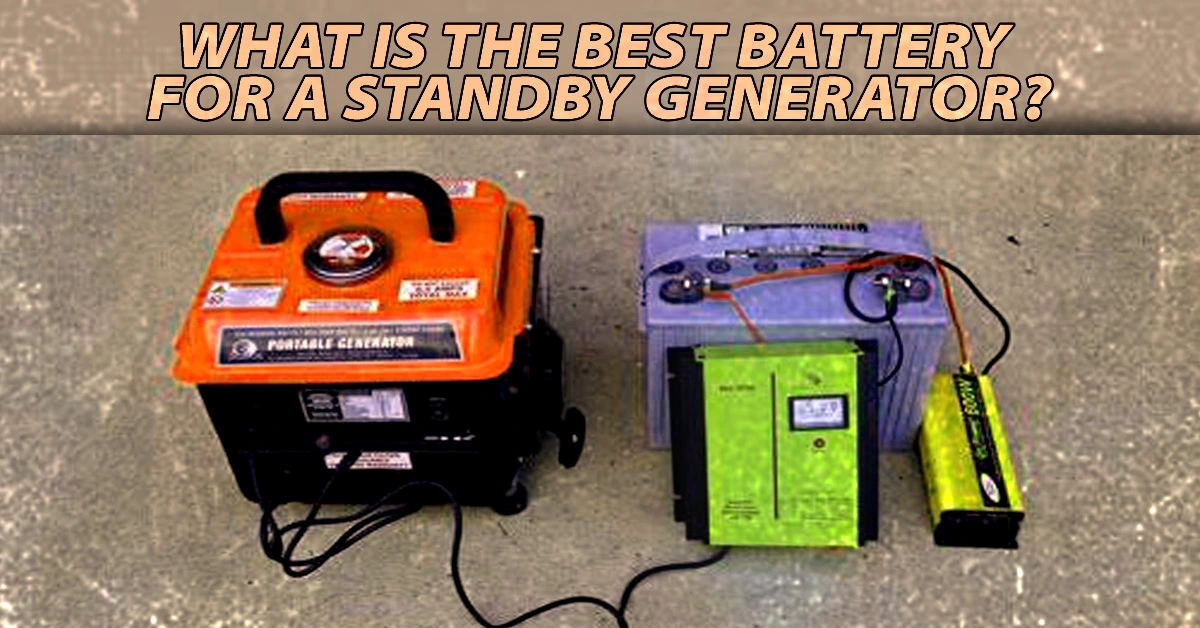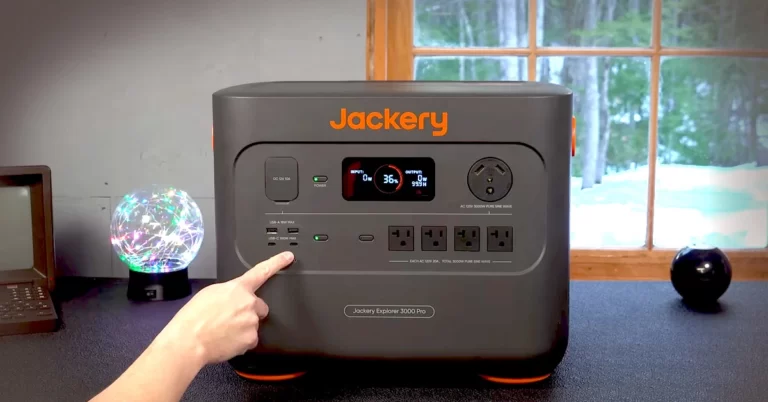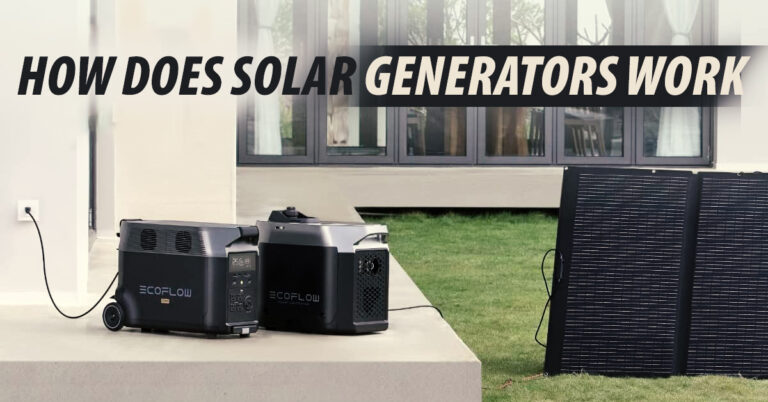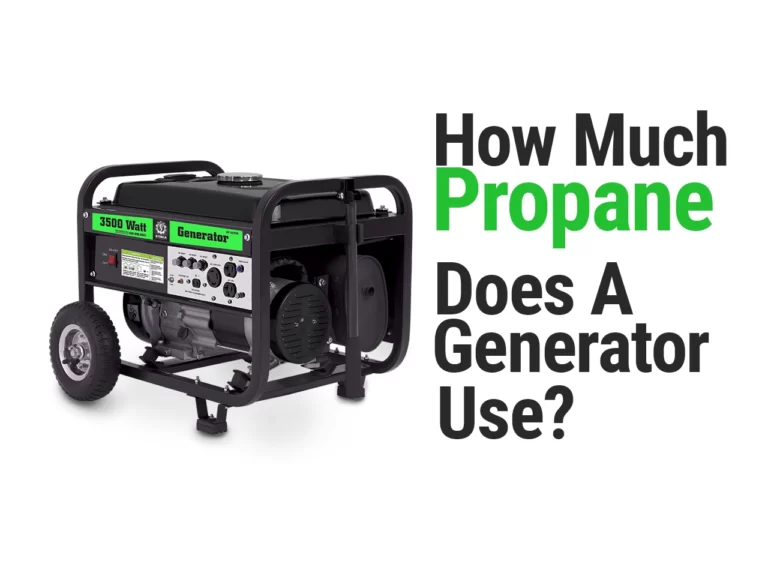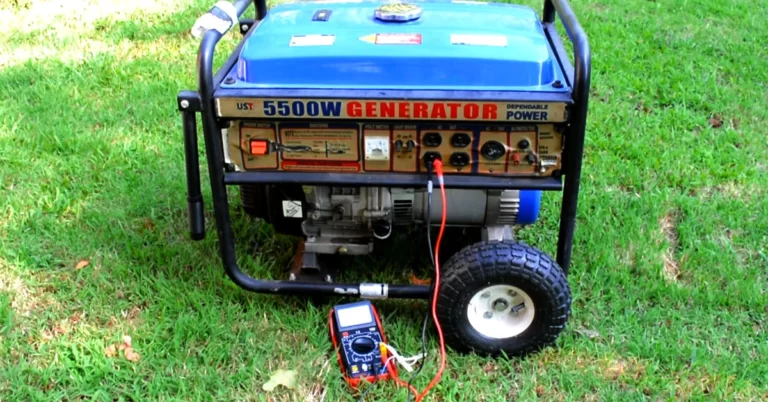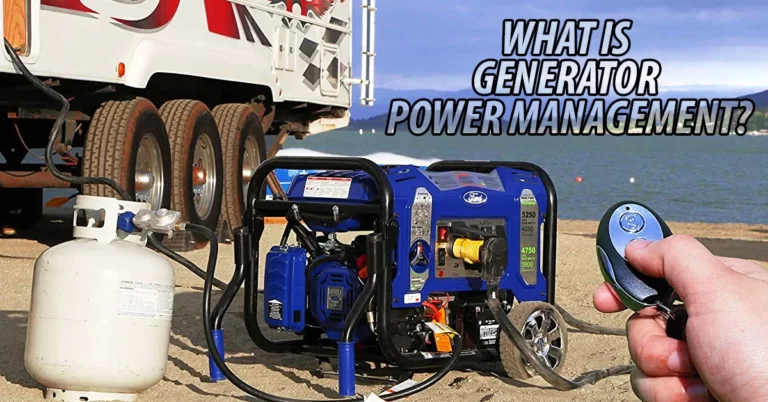What Is The Best Battery For A Standby Generator?
It’s critical to pick the best battery generator for your standby power requirements. The generator’s capacity to supply electricity in an emergency will depend on its efficiency, dependability, and durability. To make sure the battery generator is appropriate for the intended use, it is also necessary to take into account the battery generator’s size, weight, and price. When selecting the best battery generator for standby power, some factors should be taken into consideration. These aspects include operating time, voltage, power output, and battery capacity. You can choose the best battery generator to supply the power you require when you need it by taking into account all of these factors.
What Is Standby Generator
In the event of a power outage, a standby generator is a backup power system that instantly provides electricity to a structure or facility.
Types Of Batteries Used In Standby Generators
Lead-Acid Batteries

The most prevalent kind of battery used in standby generator systems is a lead-acid battery. They last a very long time and are relatively inexpensive. They might be bulky, need routine upkeep, and have constrained charge and discharge capacities.
Gel Cell Batteries

Lead-acid batteries known as “Gel Cell Batteries” use gel as the electrolyte rather than liquid. As a result, they are more expensive and spill-proof but also more robust. Although they last longer than typical lead-acid batteries, they still need routine maintenance.
Lithium-Ion Batteries

In comparison to older lead-acid batteries, lithium-ion batteries provide several advantages. They have a longer lifespan, require less upkeep, and are lighter. They can, however, be more sensitive to temperature changes and are also more expensive.
The ideal battery for a standby generator system will rely on many variables, including your budget, your needs in terms of performance, and your personal tastes. To choose the right battery for your unique needs, it’s crucial to thoroughly weigh the benefits and drawbacks of each type.
How To Choose the Best Battery For A Standby Generator
It might be difficult to choose the finest battery generator for your standby power requirements, but it is crucial to take your time and thoroughly analyze each of the variables to make sure you obtain the generator that is best suited to your needs. Here are some essential steps to remember as you look for the ideal battery generator.
Power Requirements
How much electricity you will actually require is one of the most crucial factors to take into account when picking a battery generator. Even massive battery backup systems can take hours to charge. It’s also important to consider how much electricity you’ll need for your house when the generator isn’t working. This is because the generator you select should have the capacity to deliver sufficient power to satisfy your requirements, whether they are for a home, business, or other type of facility.
Budget
When selecting a battery generator for your home, the cost is a key factor. Battery-powered generators come in a variety of pricing ranges, with some models going for a few hundred dollars and others for several thousand. Finding a generator that not only fits your budget but also provides the electricity you need and performs consistently is crucial.
It is crucial to keep the battery lifespan in mind when thinking about your budget. In the long run, you will save money by using a generator with a longer battery lifespan because you won’t need to replace the batteries as frequently. On the other side, a generator with a shorter battery life may be less expensive initially, but it will need to be replaced more frequently, which over time can add up.
It’s crucial to strike a balance between the generator’s initial price and its eventual cost, taking maintenance and battery costs into account. You may select a battery generator that offers your home the ideal blend of power, dependability, and affordability by conducting a study and contrasting several possibilities.
Recharge Frequency
When selecting the best generator for your needs, it’s crucial to take the battery generator’s recharge cycle into account. This element establishes how frequently the generator must be recharged, which may have an effect on the total cost of ownership. A battery generator can need to be recharged every few hours or every few days, depending on your household’s power needs and the generator’s capacity.
The Financial Effects Of Charging Frequently
The quantity of times your battery generator is recharged can have a sizable effect on your overall prices. The cost of electricity consumed for recharging the generator over time would increase if it needs to be done frequently. Additionally, if the generator needs to be recharged frequently, it might not be able to supply adequate power for long periods. On the other hand, the generator will probably be able to produce more electricity for a longer amount of time if it can be recharged less frequently. It’s crucial to weigh the expense of recharging against the overall power needs of your home when choosing the recharge frequency.
Power Of The Generator
The power of the generator is also an important factor to consider. The power of the generator is determined by its wattage, which determines how many appliances it can power at once. A higher-wattage generator will be able to power more appliances, but will also be larger and more expensive.
On the other side, the battery size dictates how long the generator can run without needing to be recharged. If you require the generator to supply electricity for long periods, a higher battery capacity is essential, but it will also make the generator bigger and heavier.
It’s crucial to thoroughly analyze your needs and the intended use of the generator when selecting a battery generator. You may choose the best generator for your needs by taking the time to investigate and contrast several possibilities.
Type Of Generator
It’s crucial to think about the kind of generator you’ll be utilizing when selecting a battery generator. Inverter generators and conventional generators are the two primary categories of battery generators available.
Inverter generators are the best choice for supplying dependable, clean electricity because they are made to transform DC power into AC power. They are also frequently more portable, lighter, and smaller than conventional generators, which makes them perfect for outdoor activities like camping and tailgating.
On the other hand, conventional generators are made to produce AC power directly, and unlike inverter generators, they are often more powerful and have a longer runtime. They are a fantastic option for those who need to generate power for extended periods because they are typically less expensive.
Indoor Generator vs. Outdoor Generator
Although there are several benefits to using an indoor generator, the biggest one is that they are frequently less expensive. The cost may be justified by several additional advantages. Make sure the battery generator you choose for your home has enough power to meet all of your demands, such as heating and cooking. If you require an outdoor generator, ensure sure it is transportable and weatherproof.
Look For Features
A battery generator’s characteristics are just as crucial as its power and battery capacity. Considerations for important characteristics include things like portability, noise level, usability, safety features, and extra accessories.
B. Keep the battery generator’s portability in mind when shopping. Look for a generator that is lightweight and portable if you intend to use it in several areas or move it around frequently. Also, take the generator’s noise level into account. Some appliances are made to be quiet, while others are more robust and long-lasting.
C. It’s important to consider how the features affect the generator’s overall performance and functionality. Safety features like overload protection and low oil warnings, for instance, aid in ensuring the generator operates safely and effectively. Additionally, the performance and functionality of the generator can be significantly enhanced by adding extra accessories like parallel operation and automatic voltage regulation.
D. When selecting a battery generator, safety features like overload protection and low oil warnings are crucial factors to take into account. Low oil alarms assist notify you when the oil levels are low and the generator needs to be refilled, while overload protection helps prevent the generator from shutting down due to overloading.
E. Some battery-powered generators also come with extras like automated voltage management and parallel operation. To boost power production, you can connect two or more generators in parallel. Automatic voltage regulation aids in maintaining a constant voltage level even when different loads are applied.
Considering Maintenance When Choosing A Battery Generator
To make sure that your battery generator is operating correctly and effectively, regular maintenance is essential. Before making a purchase, it’s crucial to take the generator’s maintenance needs into account because skipping maintenance might result in decreased performance and future issues.
The generator’s lifespan can be increased and its overall performance enhanced with proper maintenance. Neglecting maintenance might result in issues that could cost a lot of money to fix or possibly leave the generator inoperable.
Check The Warranty For Choosing a Battery Generator
When selecting a battery generator, it is essential to check the warranty. The warranty serves as a safety net if the generator has any troubles or problems. It gives you confidence and safeguards your money.
If your generator has any problems, a solid guarantee can provide you peace of mind. So that you can concentrate on utilizing the generator for its intended purpose, it makes sure that any issues are resolved promptly and effectively.
Operating Temperature Range
A battery’s operating temperature range should be taken into account when selecting one for a standby generator system. It describes the range of temperatures where the battery can operate efficiently without suffering any substantial performance loss. It is crucial to select a battery that is appropriate for the temperature range in the location where the generator will be utilized because batteries have varying operating temperature ranges.
It is necessary to select a battery with an operating temperature range that is compatible with the location where the generator will be operated because excessive temperatures might shorten the battery’s lifespan and decrease its overall performance.
Comparison Of The UpFront Cost Of Different Battery Types
Depending on the battery type under consideration, the initial cost of a battery for a standby generator system can vary significantly. Lithium-ion batteries are frequently more expensive than lead-acid batteries, which are typically the more affordable option. In terms of price, gel cell batteries are somewhat in the middle of these two choices.
Cost-Saving Tips For Selecting A Battery For A Standby Generator System
Take into account the following advice to help you save money when selecting a battery for a standby generator system:
- Compare the initial price, ongoing costs, and lifespan of various battery types.
- Select a battery that not only matches your budget but also provides the performance you require.
- To assure quality and dependability, think about buying a battery from a respected brand.
- To avoid incurring additional costs due to compatibility difficulties, think about buying a battery that is compatible with your standby generator system.
Consideration Of The Long-Term Costs And Benefits Of Different Battery Options
The long-term costs and benefits of each choice should be taken into account when selecting a battery for a standby generator system. For instance, though lithium-ion batteries might cost more upfront, they frequently last longer and need less upkeep, which can result in significant long-term cost savings.
Recommendations For The Best Battery For A Standby Generator
Factors To Consider When Choosing The Best Battery For A Standby Generator System
It’s crucial to take into account a variety of aspects when selecting a battery for a standby generator system, including the operating temperature range, performance, price, and compatibility with the generator. To ensure the battery will function at its best, it’s also crucial to consider the particular needs and specifications of the generating system.
Recommendations Based On Operating Temperature Range, Performance, And Budget
Choose a battery that can withstand temperature swings while keeping in mind the generating system’s operational temperature range. Consider the battery’s capacity, discharge rate, and lifespan while assessing its performance. Choose a battery that offers the best value for the money after taking your budget into account.
The Importance Of Choosing A Battery That Fits The Specific Needs And Requirements Of The Generator System
It is essential to pick a battery that corresponds to the unique needs and specifications of the generating system. This will guarantee that the battery performs dependably and effectively over time.
The Benefits Of Working With A Trusted And Experienced Professional In Selecting The Best Battery For A Standby Generator
Working with a dependable and knowledgeable professional will help you make informed decisions and suggestions for the finest battery for your standby generator system. They can aid you in weighing the aforementioned elements and directing you toward a well-informed choice.
Conclusion
You can select a battery that meets the specific needs of your generator system and provides long-term benefits. Ultimately, a well-selected and well-maintained battery can help to ensure the reliable operation of your standby generator, providing peace of mind and protection for your home or business.
FAQs
-
What is the best battery for a standby generator?
The ideal battery for a standby generator is one that was created especially for it and complies with the generator’s specifications. The amp-hour capacity, voltage, and discharge rate of a battery are a few things to think about when selecting one for a standby generator. Choosing a battery with a high level of dependability and a lengthy lifespan, like a sealed lead-acid battery, is also crucial. Additionally, picking a battery from a reliable company that provides a warranty and customer assistance is advised.
-
How does the amp-hour capacity of a battery impact its use with a standby generator?
A battery’s amp-hour capacity is a measurement of how much energy it can hold. Because It’s critical to pick the best battery generator for your standby power requirements. The generator’s capacity to supply electricity in an emergency will depend on its efficiency, dependability, and durability. To make sure the battery generator is appropriate for the intended use, it is also necessary to take into account the battery generator’s size, weight, and price. When selecting the best battery generator for standby power, some factors should be taken into consideration. These aspects include operating time, voltage, power output, and battery capacity. You can choose the best battery generator to supply the power you require when you need it by taking all of these factors into account.
-
What is the importance of choosing a reliable battery for a standby generator?
For a backup generator, a durable battery is essential since it guarantees the generator will have a steady power source. A dependable battery will also last a long time, lowering the frequency of replacements and thus saving money. Additionally, a dependable battery is less likely to malfunction or cause issues during a power outage, which could pose a major safety risk.

